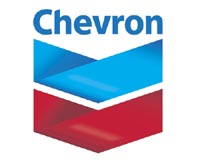 |
Berlin (UPI) Mar 22, 2009 U.S. solar power firm First Solar and several other companies recently joined the Desertec project, which is aimed at powering Europe's homes with green electricity from North Africa. Italian utility Enel, Spanish grid operator Red Electrica, French building materials maker Saint Gobain and Moroccan energy holding Nareva joined the Desertec project, the initiative said Monday. The announcement comes a week after Arizona's First Solar joined the $550 billion project, which hopes to supply North Africa and 15 percent of Europe's power by 2050 with a solar-power-dominated network of renewable energy sources. The plants in Africa would be linked to Europe via an underwater high-voltage direct current grid that requires billions of dollars in investments. "The challenges of energy security and global warming demand bold solutions and Desertec certainly provides an ambitious vision," Stephan Hansen, First Solar's head of sales and customer service for Europe, the Middle East and Africa, said in a statement. The company will join for three years and then evaluate whether to extend its involvement. First Solar is the first pure photovoltaic company in the project. This has been a surprise to analysts, as Desertec was so far meant to focus on energy generated mainly via concentrated solar power plants located in the Sahara. (The project also aspires to include wind farms and biomass plants). In light of quickly changing market realities and the long-term scope of the project, it seems the initiative is broadening its member base. So far, companies from Germany have dominated Desertec. Its founding members include technology giant Siemens, Deutsche Bank, insurer Munich Re as well as utilities Eon and RWE. "We are now making a key step to internationalize our initiative through the accession of additional companies from Europe and North Africa," Paul van Son, the head of the initiative, said in a statement, adding that Desertec was about to finalize talks with a company from Tunisia. European energy experts have long advocated making the sunny African deserts Europe's power bank in order to reduce the continent's dependence on oil and gas imports from Russia and the Middle East. They say a welcome side-effect of the project is that it helps the host countries to technology and clean power. While investors have always been deterred by the high up-front investment required, the companies involved in Desertec bank on cost-sharing and government aid. The German government has already promised to support Desertec and created a task force to monitor the project. Economy Minister Rainer Bruederle has said he would try to make Desertec a European initiative. Yet the project also sparked criticism. Claude Turmes, a European Parliament member for the Green Party and one of Europe's most active energy politicians, is generally supportive of the idea of Desertec. He warned, however, that the utilities involved have a hidden agenda. Grids in North Africa can't yet support a large-scale power plant but that would change with Desertec, he said. "Every cable that is being laid through the Mediterranean is the ultimate door-opener for investments into a coal-fired or nuclear power station," Turmes said last week at an energy conference in Berlin organized by the German Green Party-affiliated Heinrich Boell Foundation.
Share This Article With Planet Earth
Related Links All About Solar Energy at SolarDaily.com
 Chevron Tests Emerging Solar Technologies In Central California
Chevron Tests Emerging Solar Technologies In Central CaliforniaBakersfield CA (SPX) Mar 23, 2010 Chevron has started Project Brightfield, a demonstration of next-generation solar energy technologies in Bakersfield, California. The project, created on the site of a former Chevron refinery, will evaluate seven emerging photovoltaic technologies to help determine the potential application of renewable power at other company-owned facilities. The former refinery site has been repurposed t ... read more |
|
| The content herein, unless otherwise known to be public domain, are Copyright 1995-2010 - SpaceDaily. AFP and UPI Wire Stories are copyright Agence France-Presse and United Press International. ESA Portal Reports are copyright European Space Agency. All NASA sourced material is public domain. Additional copyrights may apply in whole or part to other bona fide parties. Advertising does not imply endorsement,agreement or approval of any opinions, statements or information provided by SpaceDaily on any Web page published or hosted by SpaceDaily. Privacy Statement |